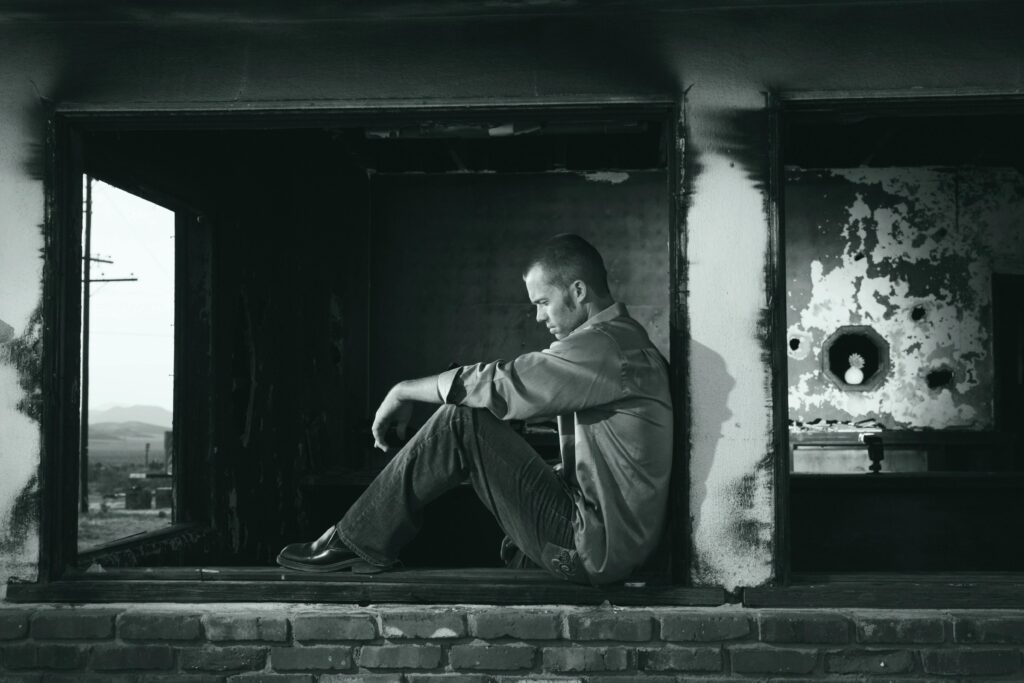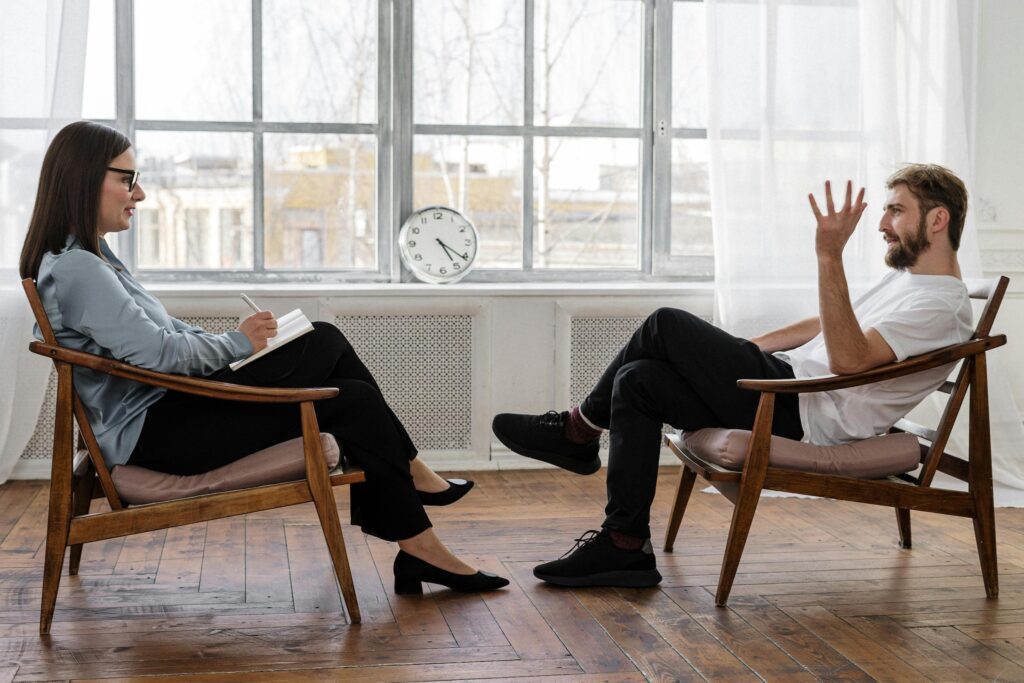 Men—a misunderstood species.
Men—a misunderstood species.
If you’ve found yourself here, I’m guessing you are in one of two scenarios.
The first, most common reason I hear, is that someone in your life (likely your wife) told you either directly or indirectly to “get some therapy”.
The second, whether or not anyone else told you, you’ve thought about therapy for a while.
It’s all the rage! It seems like everyone has a therapist these days. If someone had mentioned getting therapy 10 years ago, you’d have been thinking “What for?” or “I don’t need that”.
But the years have taxed you.
Work, the wife, the kids—it’s everything you’ve worked to build, but you didn’t realize how much it would take to maintain, or how much of you it would weather away.
Or perhaps you are on the other side of that season of life looking back, reflecting on what you could have done differently so that the relationship with your adult children, or with your wife in empty nest, could be better.
If you’re here I’m guessing there are various backgrounds and comfort level with feelings and introspection. More common, it is a low level of comfort. For most men, those kinds of conversations have been limited in size and scope for their entire lives.
You don’t go to other people with problems unless you need tangible help—lifting some furniture, holding a flashlight, diagnosing an engine light, and so on and so forth.
But when it comes to feeling burdened by family life,
Or inadequate at work,
Or not good enough for your family despite your efforts,
THOSE conversations stay inside.
And when they creep up from your heart into your consciousness, you don’t listen for very long before you find the next thing to do. It hurts too much to think about for too long.
 One of the most tragic stories of mankind, in my opinion, is the way we’ve dismissed men’s emotional world
One of the most tragic stories of mankind, in my opinion, is the way we’ve dismissed men’s emotional world
We’ve tasked you with being the provider and protector of your families but not given you the emotional support that is required.
We’ve only allowed you to express a limited number of emotions (anger, happy, or chill) and given you such a limited toolbox to work with (stonewall, fight, or distract).
Some men have developed their own tools to deal with feelings such as phone distraction, more work or hobbies, or substances. While they work to ease a difficult thought or feeling for the moment, it is usually temporary and comes with dangerous side effects.
Your loved ones want to support and connect with you —but you’ve never been shown how.
Actually, you may have even tried only to open up but the results have been mixed ranging from limited success, to being dismissed, or at worst, stepped on a landmine and it’s made things worse. You would do anything for your family. It’s a drive that you feel in your bones. Yet, you can’t figure out what that is.
 You go to work.
You go to work.
You mow the lawn.
You even help out with the kids and are starting to do more chores around the house.
It just doesn’t seem to be enough.
Will it ever be enough?
Will YOU ever be enough?
Let’s redefine “man enough” together.
Everything we’ve been taught about manhood has been massively skewed. Sort of like one of those fun house mirrors. You know who you’re looking at in the mirror but it’s so distorted it’s hard to look at.
Sure, men are assertive and strong but manhood is not about overpowering others.
Sure, men are confident and goal-oriented but manhood is not about dismissing others.
Sure, men are stable and focused but manhood is not about rigid expectations.
All of these qualities are important parts of manhood. Each are beautiful pieces of being husbands, fathers, bosses, and friends. They are not the problem. And YOU are not the problem.
The problem is how these wonderful qualities have been exploited in ways that hurt men and their loved ones. They have been twisted into a narrow extreme that leaves men and their loved ones trapped by cultural expectations of what it means to be a man.
Here’s another problem—this is not all you are.
Men also have the capacity to nurture, to be generous, to be collaborative and flexible.
And when men embrace the best parts of masculine qualities, while also allowing for the influence of feminine qualities, they become an electrifying, positive force for their families. Ying and yang are both beautiful in their own ways and must exist together for the benefit of each other. I believe that two opposing viewpoints have merit and, in fact, can strengthen each other and make them better than they could be on their own.
Elephant in the room— I am not a man.
We have to address this one. You are right. I am not a man. I do not share that lived experience. In many ways I am more stereotypically female than you may even be male.
But here’s the thing. I am, at my core, relational which means that I believe that we are all connected.
As a relationship therapist, my work has been defined in understanding people in their own unique experience. There is no way I could walk in every  client’s shoes but I find there is more shared experience in the human condition than you would ever imagine.
client’s shoes but I find there is more shared experience in the human condition than you would ever imagine.
I am not a man, but I do know what it feels like to hold a sense of responsibility for others.
I am not a man, but I do know what it feels like to be misunderstood.
I am not a man, but I do know what it feels like to not feel good enough despite your greatest efforts.
I am not a man, but I do know what it feels like to be impacted by generations before you.
These are common themes I hear from both the men in my practice and the men in my life that I love.
Most men seem to really enjoy therapy.
I don’t know how I stumbled into helping men understand themselves and their loved ones better but here we are.  And what I can tell you, spoken from the men in my practice, is that most men feel a sense of relief and comfort from therapy.
And what I can tell you, spoken from the men in my practice, is that most men feel a sense of relief and comfort from therapy.
After hearing directly from men about their positive experience of therapy, I started to realize what was happening. They were getting what they’ve been deprived of for so long—real, genuine human connection in the form of being seen. I really didn’t do anything different from any other person in therapy—Listen, reflect, validate, consider.
From there they started to figure out what they were missing and how it was affecting their relationships.
Riding a bike is not hard if you learned when you were a kid. It also wasn’t as hard of a fall while you learned. The concept isn’t hard to grasp either.
Neither are emotions or relationships. There are elements of balance and correction, movement and coasting. Let me walk alongside you as you learn. At first, I’ll hold your seat before you feel ready for me to let go.
Reach out today at (715) 725-0820 so you can be the man you’ve always wanted to be.

